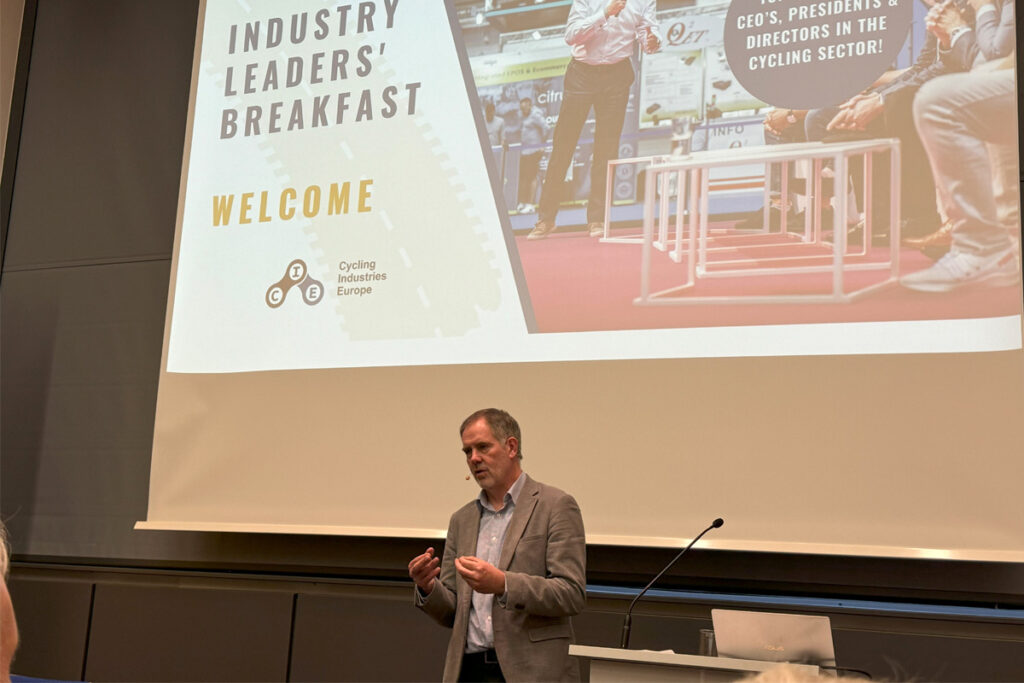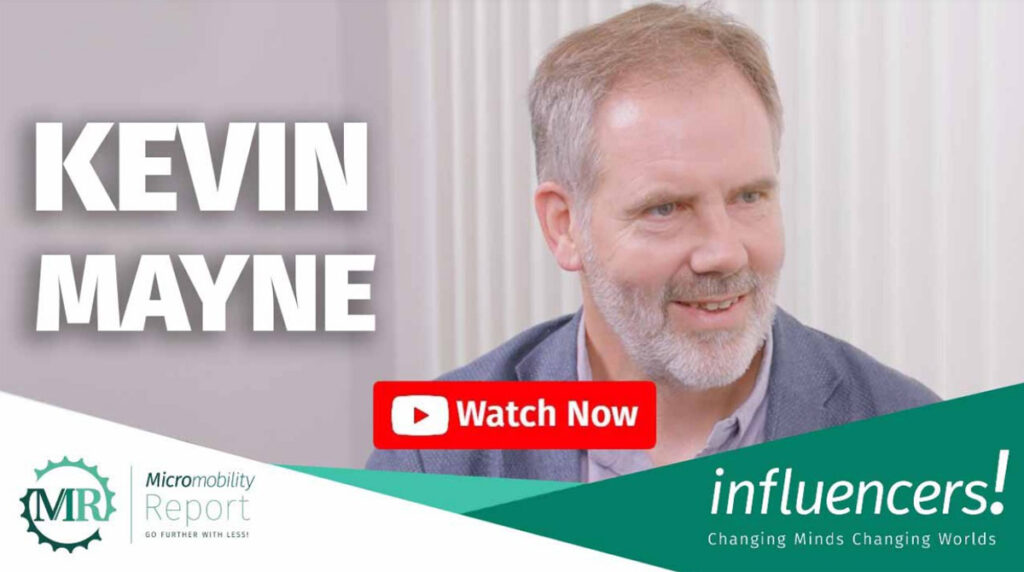Parting Thoughts from One of the World’s Key Cycling Advocates

Brussels, Belgium
At the end of 2024, Kevin Mayne is retiring as CEO of Cycling Industries Europe (CIE). We took the opportunity to talk with Kevin about his decades long career in cycling advocacy in the December edition of our Micromobility Report Podcast that you can see here.
Kevin is an Englishman who took a huge pay cut to leave a successful international corporate career and join the cycling advocacy world, first as CEO of Cycling UK, then as Development Director of the European Cyclists’ Federation and finally six years as the founding CEO of CIE.
Kevin has lived in Brussels, Belgium throughout his time in the latter two roles, as it is the home of the European Parliament and European Commission – organisations that oversee the 27 nation European Union, which is one of the world’s largest and most influential economic regions.
Brussels itself was a very car dominated city until recently, as Kevin noted, “Here in Brussels, I was the only idiot biking in from 15 kilometers south of the city to work in the morning 12 years ago. Now the bike lanes are full. People riding speed e-bikes and e-bikes coming in from the southern suburbs. It’s glorious! Really glorious.”
During his most recent role, Kevin and his team have played a key role in seeing billions of Euros of new funding for cycling infrastructure being allocated throughout the EU member nations..
Kevin gave some great insights in our recent interview. Knowing that not everyone who reads this our newsletter and website also listens to the podcast, here are some of his key thoughts from our discussion.
On the need for all like-minded advocacy organisations to collaborate, Kevin said, “The absolute first is, do not waste anything. Mergers and alliances and collaborations and partnerships are a better way of spreading your resources of bringing in experts.”
He also make comment that advocates need to be pragmatic and ready for any political situation.
“We need a toolkit that says when the political wind is blowing in a certain direction, how can we place cycling on the agenda?
“Cycling advocates have to be able to be political scientists more than we ever did. It’s not where we came from. But you know, I can do this from passion, but passion can be ineffective. You’re just blowing against a gale.”
When asked for a key tip on how to successfully lobby people in power, Kevin said, “You’ve got to be willing to make alliances with the people you’re actually lobbying. It’s one of the fundamental principles of political science in that you do not have breakthroughs without coalitions.”
On the importance and leadership of city governments when it comes to cycling, compared to their often lagging national governments, he observed, “Cities cannot live with congestion. They cannot live with air pollution. They cannot live with transport poverty. And we arrive at a right time with products like the e-bike. We arrive at the right time with the cargo bike.
“The 15 minute city concept has been horribly tarnished by being part of a conspiracy theory. But it’s actually – 15 minutes from where everybody lives should be a really great place to go with your kids that you can get to by bike and where kids want to hang out. Let’s not get too hung up what that is: it could be a couple of coffee shops, it could be a park, it could be a beach and really, if you’ve got great destinations, start there.
“You can’t fix an entire multi-million population city. But if you can link great destinations with where people live, then you have the basis of a 15 minute city, with the bike, e-bike or the shared bike as the instrument.”
When discussing the importance of the new industrial policy that CIE is developing, Kevin explained, “In the 30,000 to 40,000 lobbyists around me here in Brussels, there are a preponderance of industrial lobbyists. The industrial lobbyists get in rooms that nobody else gets in. And so we just had to learn how to do that.”

“Let’s be clear for your Australian (cycling industry) ecosystem. I mean, it’s not going to be on the current trajectory, a manufacturing ecosystem. You are an import economy, but on our analysis for Europe, 80 percent of the jobs associated with our ecosystem are aftermarket jobs. You know, they are deliveries. They are digital. They are leasing. They are fiscal. They are repairs. They are recycle, tourism, operating bike hire, whatever you look at, but it’s 80%. So, if you narrowly define yourselves by just the supply chain part of the industry, then you’re just losing all of that power.”
Kevin is about to visit Australia, mainly for family reasons, but will be meeting with some advocacy organisations while he’s here. When asked about his recollections of Australia, one of his comments was, “Well the one thing about Australia I say that it strongly it shares with even countries like Russia and the United States – the roads are enormous. They’re absolutely enormous! So that the space is there.”
Finally, when reflecting upon the end of at least his full time managerial era at the highest level of cycling advocacy, Kevin said, “You can’t switch this off, it’s a life thing. It is more than the job I’ve done for the last 20 plus years. It’s in my family DNA. It’s in my DNA. It’s something I’m passionate about, people and organizations.
“Cycling advocacy can be like beating your head against a wall! (I like) enabling people to see beyond that and celebrate small victories and move on and build. This is the kind of mentoring that I’ve done in the past and really motivates me.
“I have been extraordinarily privileged. It’s very hard to find negatives in the cycling community. There’s a base of lovely people who believe in all parts of cycling and they believe in each other. That doesn’t go away because I retire. They are my glorious extended family.
I say, “Just keep doing it!” People like me will try and help you have more impact. But it starts with, with you and you are really, really inspirational.”
